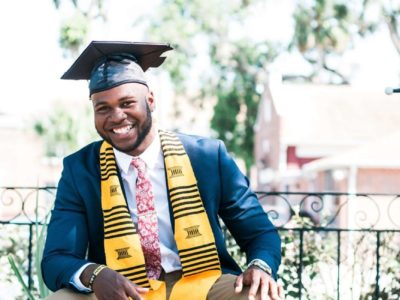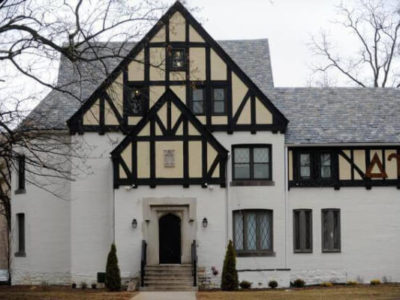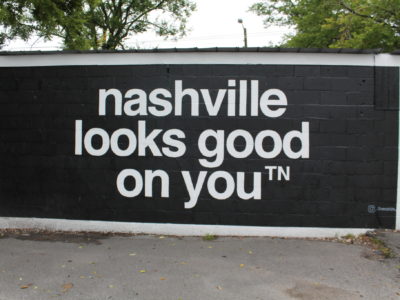“Education is for improving the lives of others and for leaving your community and world better than you found it,” said Marian Wright Edelman, HBCU alumna and founder of the Children’s Defense Fund.
Everyone deserves the chance to get an education in an environment that they both admire and feel welcomed in. Historically Black Colleges and Universities, better known as HBCUs, remain alive and thriving since 1854, with many world-renowned scholars, athletes, actors and humanitarians hailing from these institutions. With over 100 HBCUs in the United States today, everyone can get an education in an inclusive and diverse environment. “I chose an HBCU over a PWI because there is nothing like walking on campus and feeling like you’re at home when you’re away from home. At a PWI I would’ve been “smart for a Black girl” and at my HBCU we are all smart Black women. I think it is imperative for Black students to go to an HBCU so the student can be in an environment with people who not only think like them but look like them and come from similar backgrounds,” Spelman freshman Raven May said.
If you want a world-renowned and world-changing institution to call your home for the next few years, check out this list on the top 10 HBCUs.
10. Tuskegee University
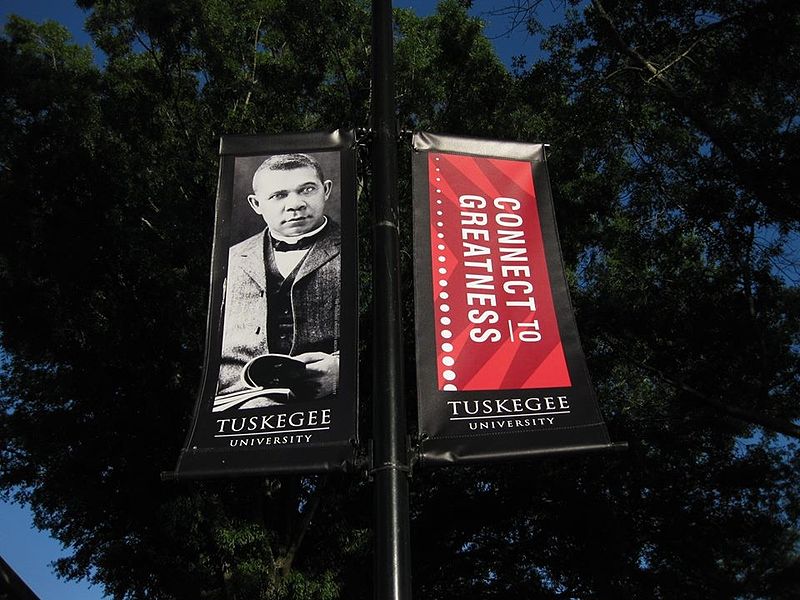
Today’s Tuskegee University thrives off its extensive history. Booker T. Washington and George Washington Carver founded Tuskegee in 1881, and their legacies continue to reign on the modern-day campus. Tuskegee produces over 75 percent of African American veterinarians in the world, is the number one producer of African American aerospace engineers in the world and is the top producer of African American general officers in the military. Tuskegee University prides itself in preparing students for the future. By helping students prepare for these majority-white and top earning career paths, everyday Black professionals break the barrier and close the generational wealth gap.
Tuskegee’s NCAAP (National Association for the Advancement of Colored People) chapter works to educate people about civil rights and bring together people of color within the university and community. “Tuskegee University provides a culture of caring that prepares students to contribute to their communities. It is a culture that builds confidence, and gives students the essential skills needed to cultivate their future careers. It is also a culture that can bridge the academic achievement gap that exits in America today,” senior Jamyla Burkes said. Day in and day out, students remain keeping Tuskegee’s rich history alive and become a part of building a brighter future.
9. Florida Agricultural & Mechanical University (FAMU)
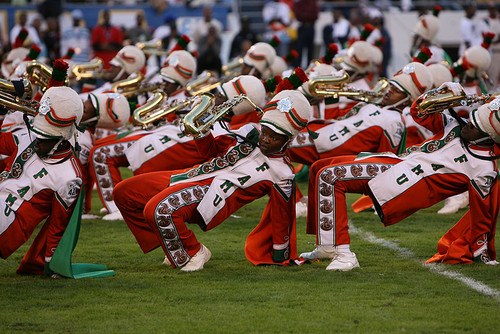
How about them Rattlers? Located in Tallahassee, Florida, the FAMU School of Business and Industry gives you quite the experience. With the FAMU College of Business thriving in an entrepreneurial area, students learn first-hand the power of creating and operating small businesses from the many Black-owned stores and alumni located in Tallahassee’s thriving business economy. FAMU’s notable alumni like Atlanta Mayor Keisha Bottoms, Pam Oliver, Common, Andrew Gillum and the first African American play-by-play announcer, Tiffany Green, make the university proud daily.
Jonathan Jones, 2020 MS and MBA College of Business alumni, accepted a position as a distribution planning manager at Louis Vuitton, leading the pack of talented business students FAMU produces. “I’m a broadcast journalism major and African-American studies minor at FAMU. The School of Journalism and Graphic Communications does an amazing job at setting their students up for greatness,” senior Noella Williams said. “My professors and peers have looked out for me since day one, since I was a lost transfer student in Fall 2019. There’s so much information that I’m receiving that I would not gain at a PWI.” At FAMU, education leads to building a better world and community.
8. Hampton University
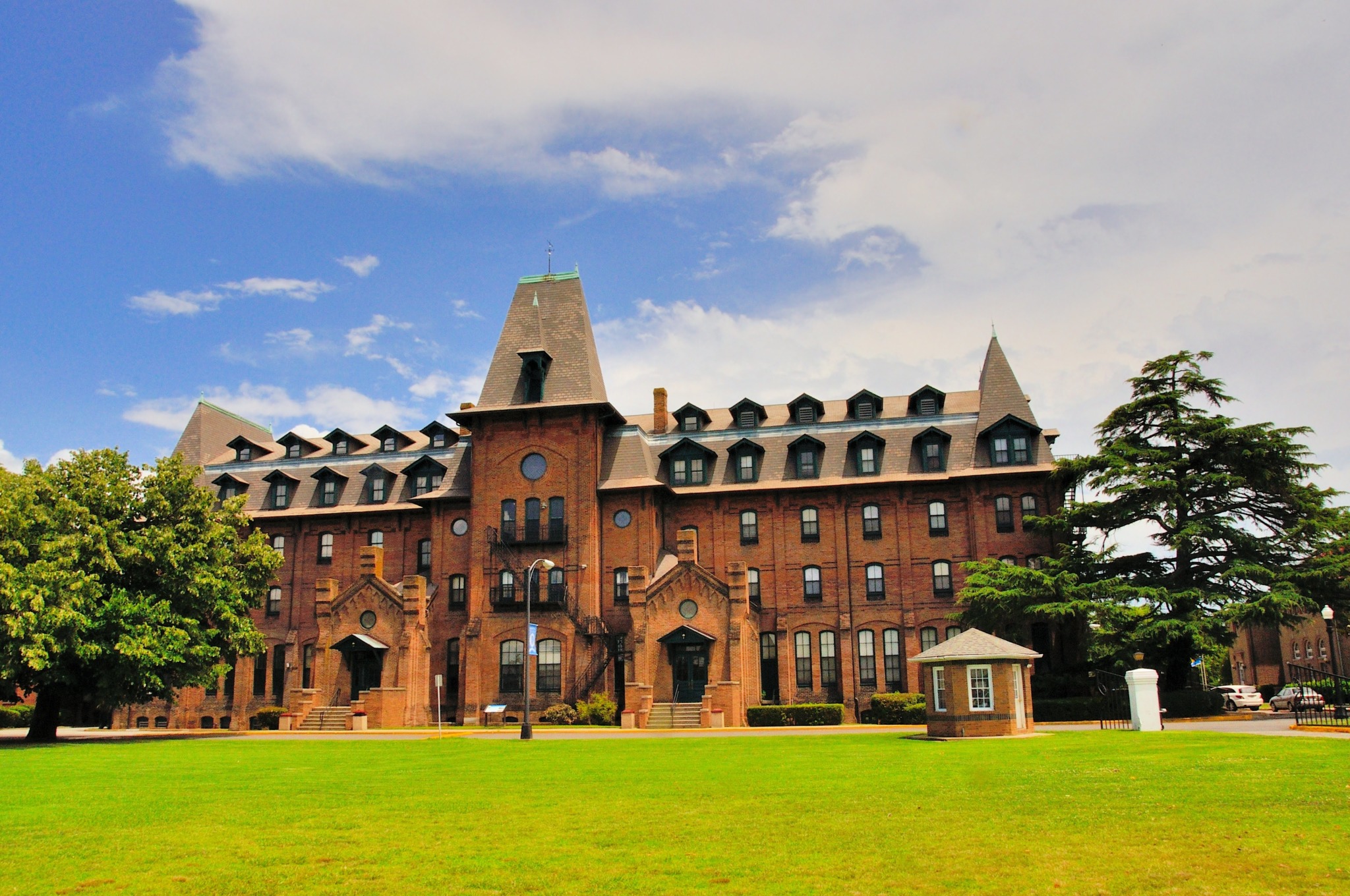
Founded after the Civil War, Hampton University focuses on history while aiming to remain progressive with the times. In recent years, Hampton continues to produce some spectacular acting alumni. Celebrities like Brandon Mychal Smith and the CW’s first Black Batwoman Javicia Leslie call Hampton their alma mater, but the list doesn’t stop there. Hampton’s Department of Fine & Performing Arts lies in the School of Liberal Arts and Education. As the universities largest school with over 1,500 majors to choose from (why not major in Music Recording Technology or Health & Physical Education?) Hampton prides itself in its long-standing reputation as one of the best in the nation.
The school sends highly-qualified teachers, artists and performers to inspire their industries. An impressive 100 percent of teachers who graduate from the College of Education are employed or in graduate school within four months. In the highly regarded English Department, students receive hands-on learning in studios like Universal and Spike Lee’s 40 Acres and a Mule Filmworks.
In 2017, the Upward Bound Program started helping low income and first-generation high school students in the nearby area by providing ACT/SAT prep, career exploration and counseling. This program helps these students gain summer college credit and access to scholarships and grants. Hampton University continues to take active initiatives to transform students in the surrounding community and growing their chances of being successful in today’s world.
7. Spelman College
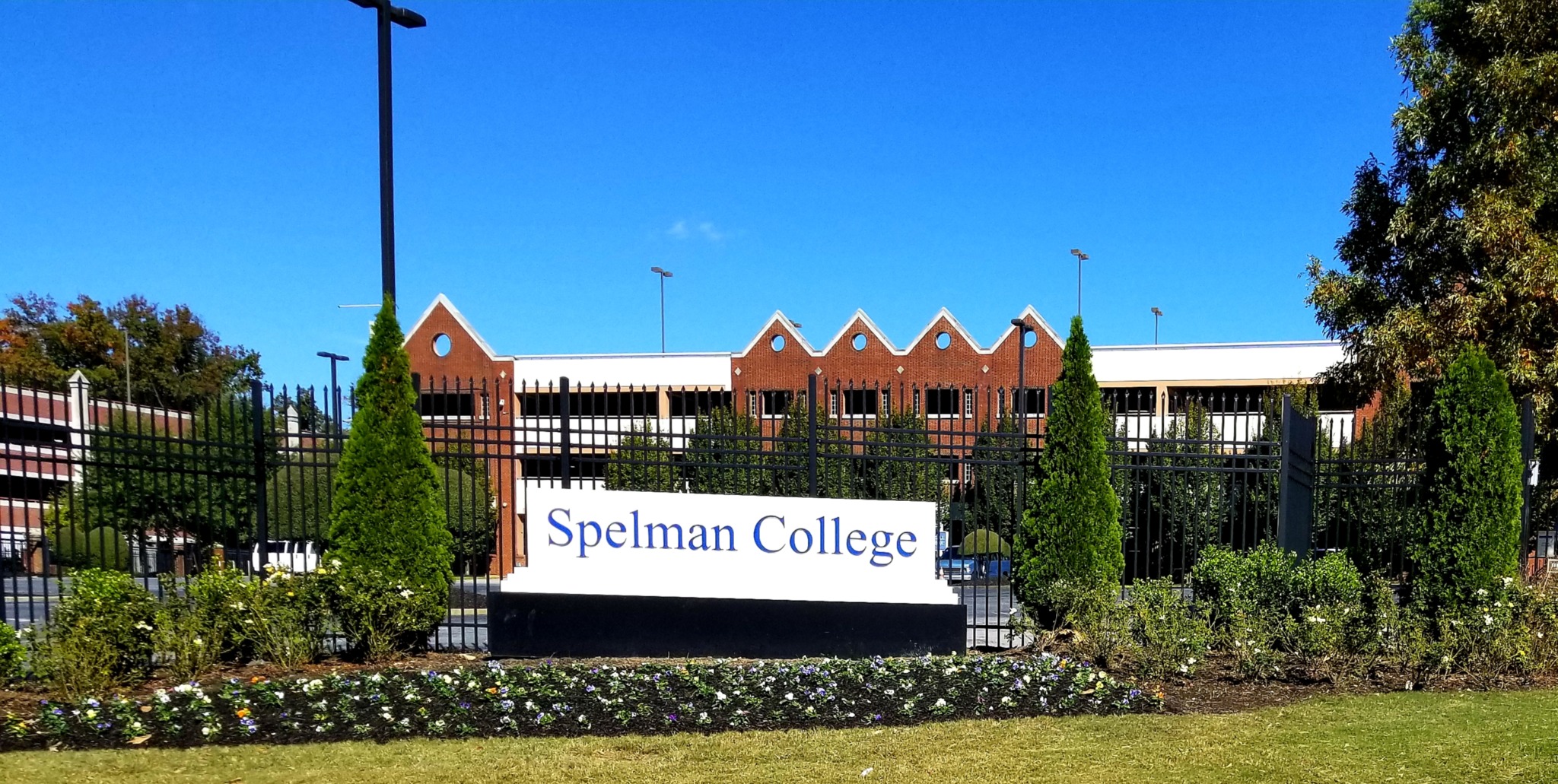
The sisterhood at Spelman College runs just as deep as its commitment to excellence. At over 76 percent, Spelman boasts the highest graduation rate of all HBCU’s in the nation, proving their commitment to making sure students receive the education they enrolled to get. The all-women’s private institution also plays a very important role in the aiding the Black community. On campus, the Feminist Majority Leadership Foundation helps students make a difference in the fight for equality. The organization encourages support and empowerment of women in all fields on and off campus. They accept new members yearly and host lectures for young women about racial inequality and sexual health, promotes social activism and provides a mentorship for all women.
Another important and world-changing organization on campus, Afrekete, aims to create a safe and inclusive space for all members of the LGBTQ+ community. The organization engages in community dialogue and volunteers with community enriching programs in the fight against oppression and discrimination. Having been founded back in 1881, through the years many notable figures like Stacey Abrams, Alice Walker and Marian Wright Edelman have called Spelman home. “I think what stands out to me the most is the connection to such a large network of Black women that are truly making an impact in so many different industries. Spelman truly is a sisterhood, and it gives you a genuine and unique support system that you typically wouldn’t have in any other environment, both academically and professionally,” alum Darrielle Fair said. Spelman encourages educating female pioneers and politicians of the future to help create a better and more equal America.
6. Winston Salem State University
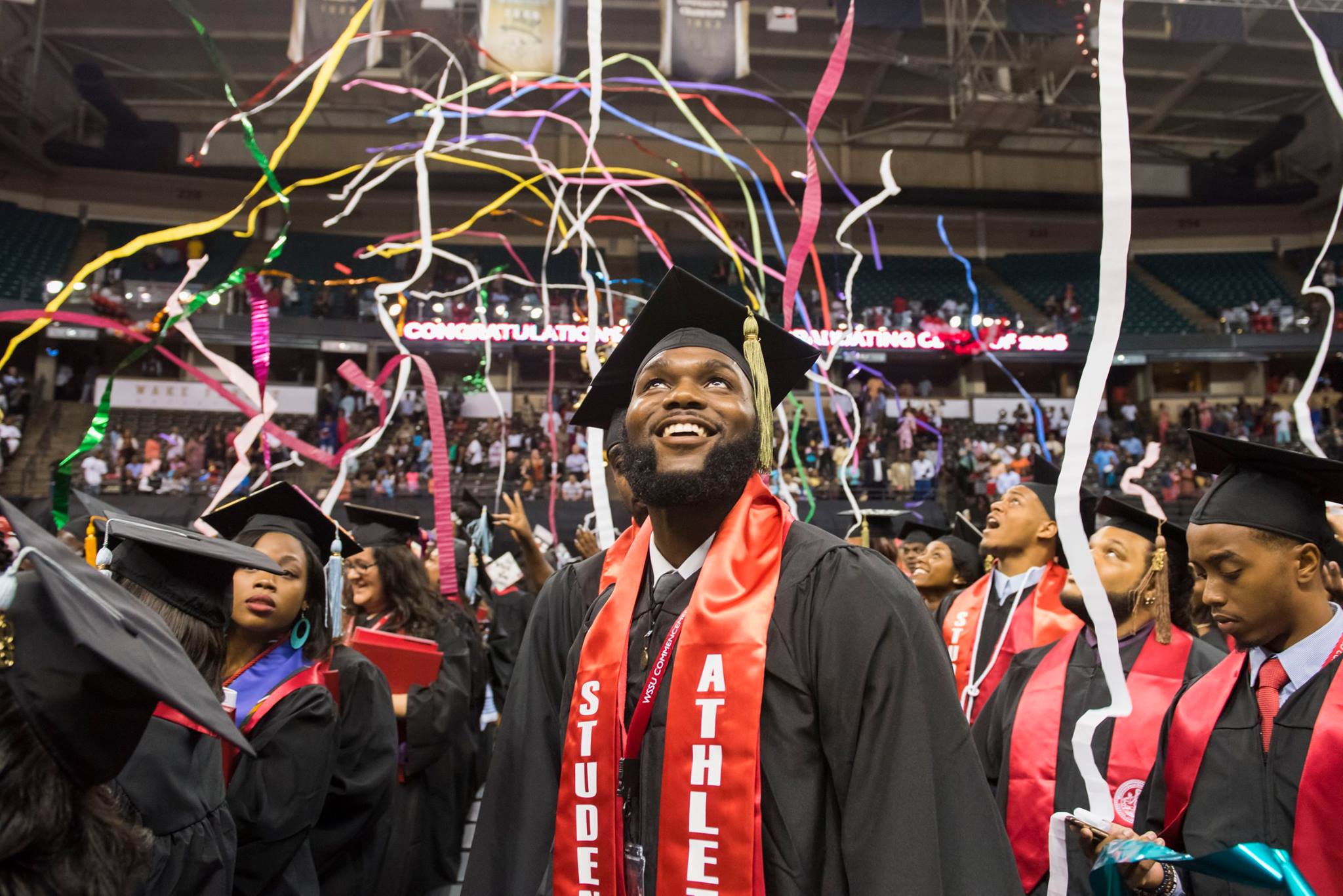
A degree from Winston Salem motivates all your dreams. Located in the historical college town, WSSU serves as the ultimate school for Black professionals looking to break into the medical field with WSSU graduating the most Black students in nursing an health professions in North Carolina. In the midst of COVID-19 and the reoccurring topic of racial discrimination being taught in healthcare, Black medical professionals should be on the frontlines to keep racial discrimination from interfering during literal life and death matters. In a historically white healthcare system, WSSU aims to help its students end the bias and help improve the Black quality of life.
WSSU also offers the only Bachelor of Science degree in Motorsport Management. With the motorsport management degree, WSSU complements NASCAR’s Drive for Diversity program and gives students many hands-on learning experiences to break NASCAR’s glass ceiling. Statistically, 91 percent of NASCAR fans are white and ratio for white men working on the racetrack looks similar to that percentage. With some motorsport management professionals making anywhere between $60,000 to $100,000 a year, the importance lies in African Americans now earning the wages once seen out of reach and the breaking into a sport that has been dominated by white men. Everyone deserves equality and with WSSU, students get the best education to help them challenge the status quo.
5. Morehouse College
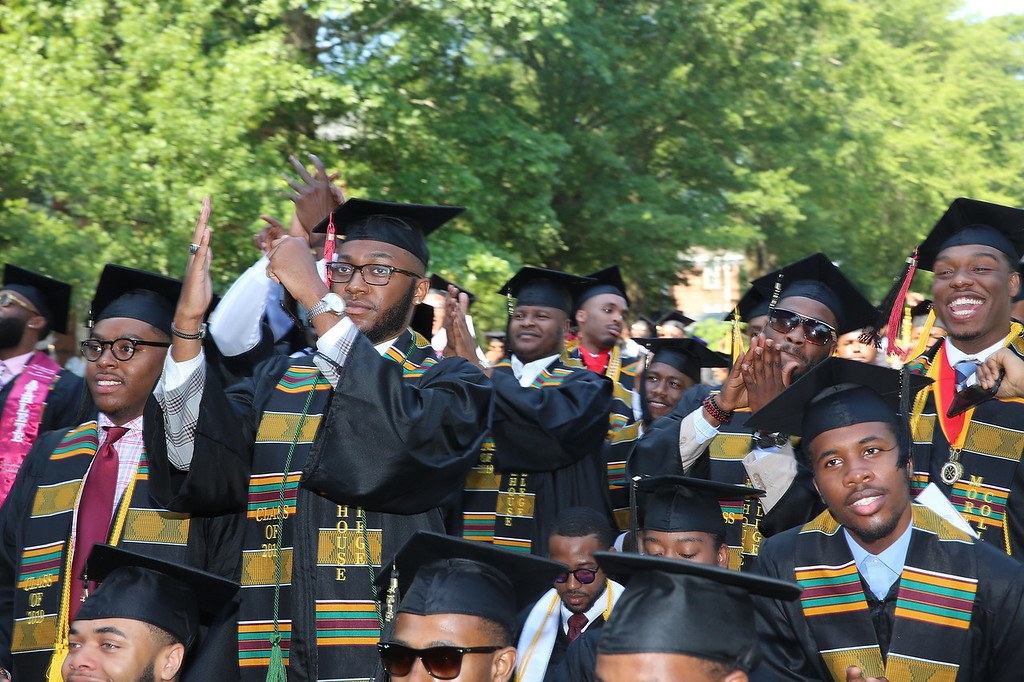
The men of Morehouse College offer a lot in and out of the classroom. The all-male campus in Atlanta dedicates its community to “Black boy joy” and producing the best to represent the community—and they’ve got the stats to prove it. Morehouse is both the biggest producer of Black men receiving doctorates in STEM and the top feeder school for Black males entering Harvard Business and Law Schools. Notable alumni include Martin Luther King Jr., Spike Lee, Metro Boomin and Samuel Jackson.
Outside of the classroom, the school boasts over 80 clubs and organizations. My Brother’s Keeper combats racial injustice and brings together the community surrounding the college. Launched by former President Barack Obama in 2014, the club aims to get young Black men in the community on the right track and supply them with jobs, knowledge and networking connections. Another student organization, Broken Shackles, aims to fight for the Black voice. The organization supports those at risk of being put in jail. The ministry group offers prayers and support for these men in the community.
Other clubs and organizations like National Society of Black Engineers, Minorities in Agriculture Natural Resources and Related Sciences and the Glee Club bring people together and help students find their place amongst people with similar aspirations. With 17 percent of the student population being first generation college students, many use resources like the Frederick Douglass Academic Success Center for its workshops, advising, post-grad help and tutoring to succeed in their collegiate journeys. Morehouse offers multiple ways for its students to complete their degree, serve the community and bring about change for the future.
4. Howard University

Located in Washington DC, Howard has opened its doors to many and produced some of the most notable HBCU grads in the game like Taraji P. Henson, Sean Combs and Kamala Harris. “One of the greatest things about going to Howard was realizing that there is so much variety within Black culture. You will enter Howard and meet people with similar backgrounds, and those who grew up completely different from you, and those cultures ultimately fuse together through language, music, and everyday habits,” alum Tierra Goldston said. Howard stands as a top producer of African American doctors and has an impressive law school to match. Year after year, Howard adds to their extensive list of notable alumni and helps provide better lives for the 24 percent of first-generation college students who attend the university.
Through Howard’s TRIO Upward Bound Programs, first-generation students get started in high school with tutoring and workshops encouraging them to college life, so that when they enroll, they will be academically ready. Outside of the classroom, the Howard Chapter of the Precious Pearl Youth Outreach dedicates itself to serving the young girls in the community through workshops, community service and mentorship programs with children in the area to inspire them in their journeys through womanhood and education. The excellence never ends at Howard.
3. Morgan State University
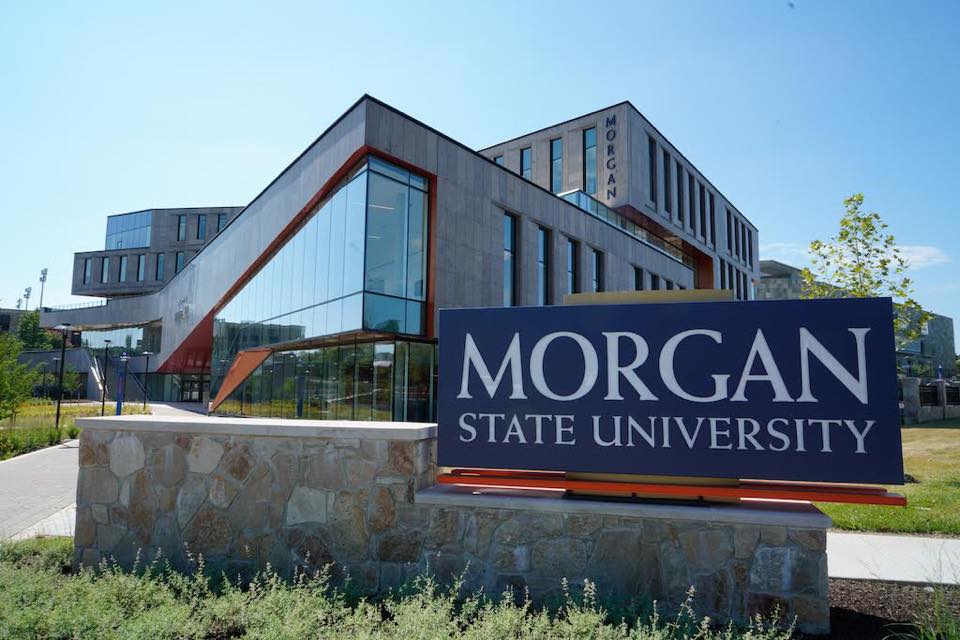
Located in Baltimore, the largest HBCU in the state of Maryland and named a National Treasure in 2016, Morgan State prioritizes the students first. With 33 percent of graduates being first-generation college students, MSU developed three big programs aiding all students to complete their education. The programs or “The Trio” include Morgan’s Upward Bound Program, designed to enhance the academic skills of high school students, Educational Talent Search, created to tutor and financially aid disadvantaged students looking to complete post-secondary education, and Student Support Services, created to help students with mental, emotion and physical disabilities in a post-secondary education.
These federally funded programs help both the students of Morgan State and the kids in the nearby community who look to one day further their education. Student and professor-led organizations also make a huge difference at Morgan State. The Morgan MILE, for example, acts as a support group and guide for Black men in their pursuit of personal and academic success through mentoring, networking opportunities and academic assistance.
Annually the Student Government Association holds the AIDS LOCK-IN. The showcases raise money for HIV/AIDS research, provide on-site testing and have help from Greek organizations who perform step shows to help draw in the crowd to help spread the cause. Black people account for 43 percent of recent HIV cases, yet only make up 13 percent of the national population according to HIV.gov. The students of Morgan State yearly work together to help fight the disease that has plagued the Black community for far too long while receiving a renowned education.
2. Prairie View A&M University
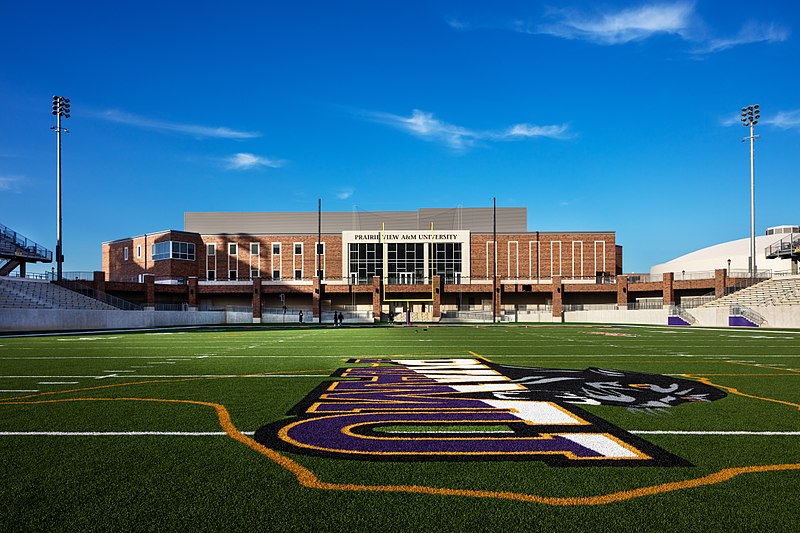
Everything really is bigger in Texas, even opportunities. PVAMU aims to help students lead a more financially stable future than when they come in by helping students earn the best average starting salaries among other HBCUs partly through the Office of Academic Engagement and Student Success’s professional advising services and career readiness workshops. “My favorite thing about PV is our commitment to our motto that Prairie View Produces Productive People. Though very cliché this statement runs true for so many alumni because you can always find PV graduates doing well in their career, but most importantly giving back to the community. That sense of community/family, and the fact that we need to take care of each other is cultivated on campus,” alumni Cameron Lavergne said. In 33 U.S. states, Black and Hispanic children are three times more likely to live in poverty than a white child and the Black poverty rate sits at more than 20 percent as of 2018, according to the Census Bureau’s American Community Survey. By producing graduates with a higher income, poverty in the Black community becomes less for future generations. At PVAMU, first-generation students get a high chance of providing better ways of life for them and their family members.
The accomplishment comes with the help of a unique degree program, the College of Juvenile Justice and Psychology. The college engages students with real-world research and problem solving to pursue careers and further degrees in the criminal justice field offering a detailed, graduate-level study dedicated to the juvenile justice system (a system which notoriously hurts many in the Black community), Black people make up nearly 38 percent of the correctional population, are five times more like to be incarcerated and due to systematic racism, make up only about 5 percent of lawyers in the U.S., according to the ABA Journal. PVAMU strives to send Black students into the courtrooms to ensure future cases are fairly served and erase the narrative created by racism. Just like in the hospital, Black people must work in the courtrooms and be counselors to each reach their youth and prevent the historically painful racial discrimination’s that occur.
1. North Carolina A&T State University
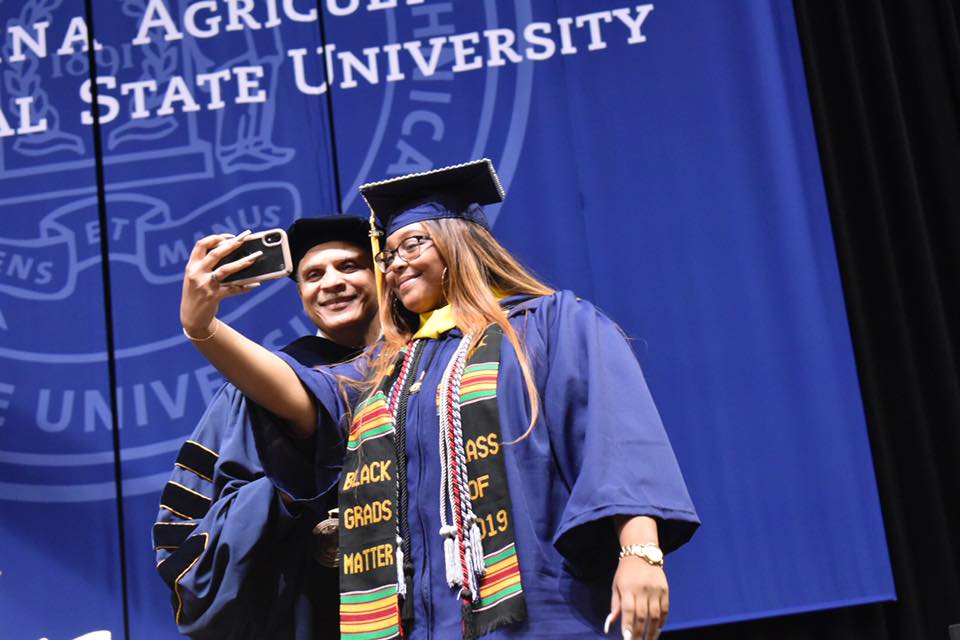
Become an NCAT Aggie and you’ll have to an unbeatable STEM program. Black people make up only four percent of engineers and six percent of other science-related fields like researchers and specialists according to the National Science Foundation. With a growing number of Black students entering STEM occupations and the generational wealth gap working its way to closure, NCAT aims to expose more Black children into fields where minorities can one day become the majorities. “NCAT is a university that truly stands by preparing its students to step out into the real world with real-world application experience. This happens through internships, co-ops, companies visiting campus, supporting student businesses, and so forth. With that unyielding support, students are invigorated and encouraged to go out into the world and get it!” alum Rebecca Hood said. This summer, NCAT received first-gen designation by the NASPA Student Affairs of Administrators in Higher Education intuitive, which recognizes institutions that demonstrate a commitment to advancing the outcomes of first-generation students because of its successful support services.
With over 100 majors like Nanoengineering, Chemical Engineering and even Journalism to choose from at the university, NCAT is the number one producer of degrees awarded to African Americans in North Carolina. NCAT desires to change the world, one STEM major at a time. Aggies also do a lot for their community. Clubs like Aggies Against Alzheimer’s, Black Girls Vote and Prism (LGBTQ+ advocacy group) all go out into the community to raise funds for research and encourage change.

